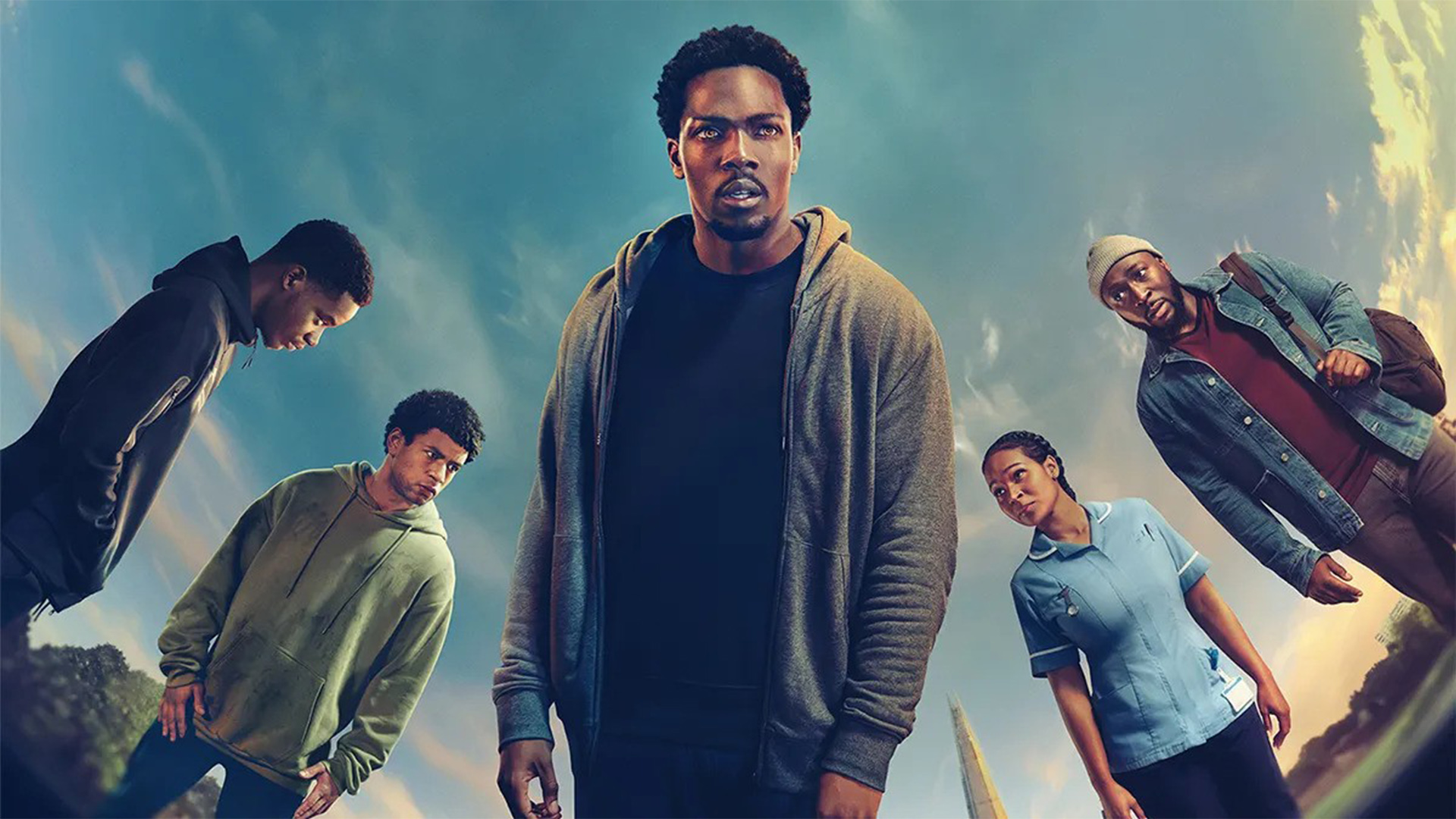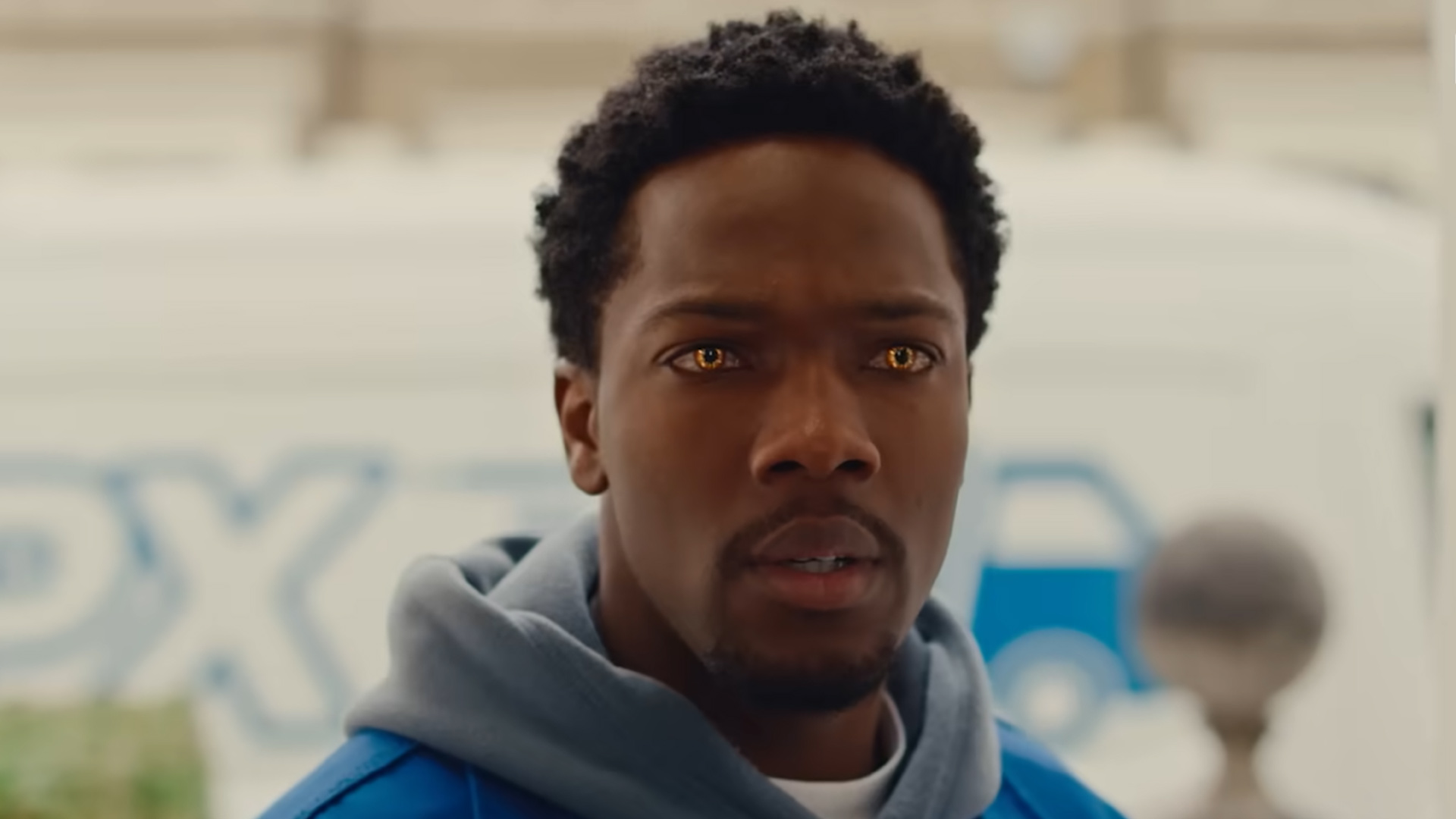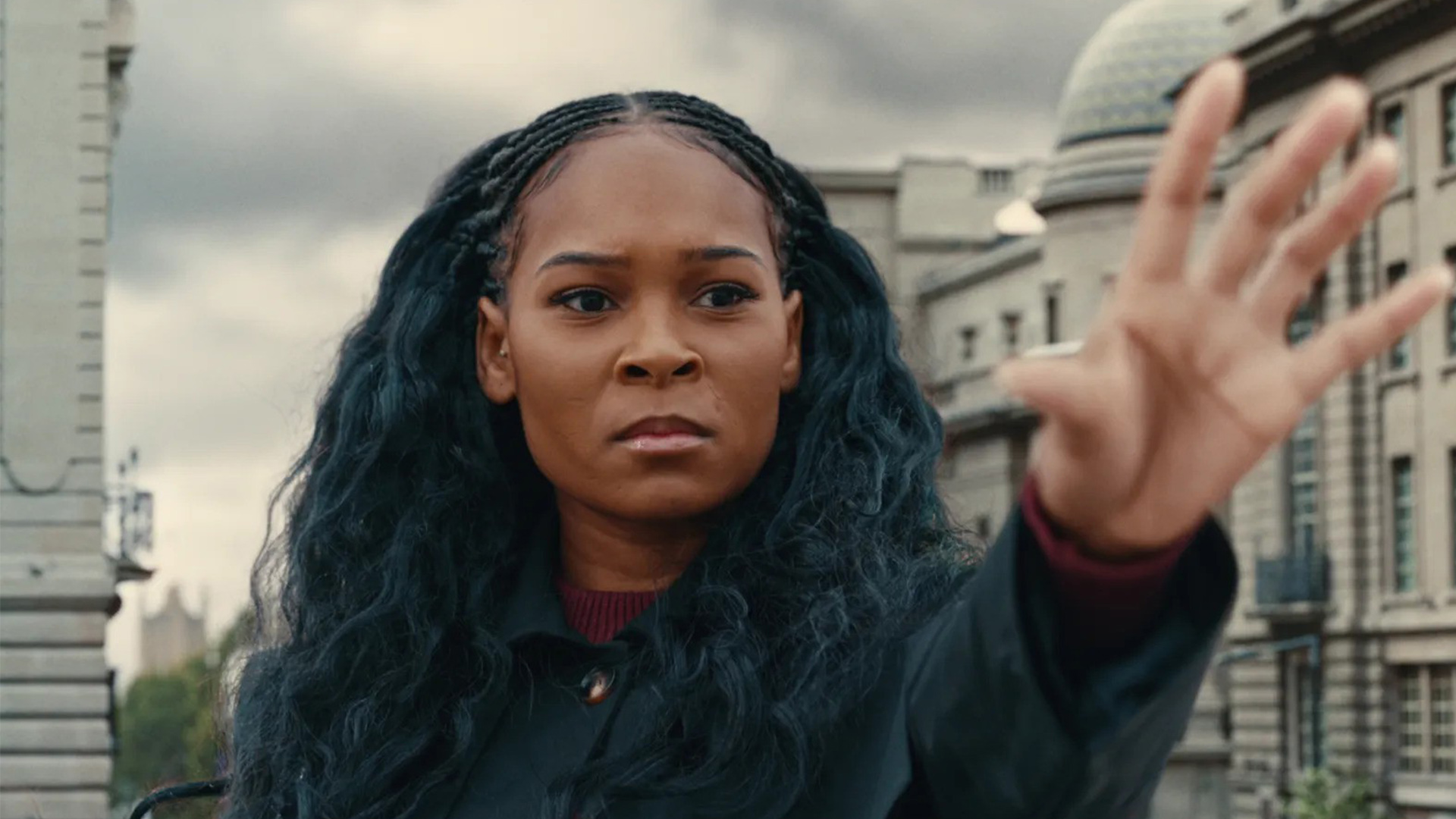
When writer/director Rapman's new superpowered Netflix series Supacell opens, we see a Black woman frantically running down darkened corridors, dressed in a medical gown with surveillance watching her every move. She’s seen as helpless and terrified, but amongst the chaos, her eyes suddenly glow a golden yellow, activating her power. Briefly she witnesses freedom until she is shot and killed by shadowy armed guards. As if to deter others from thinking about their own escapist freedoms, her body is dragged past other Black prisoners locked in their respective cells.
Such a metaphor is one of the many commentaries running through Supacell. From an industry perspective, the idea of Blackness has always been trapped in a cage. Stereotypes such as 'The Angry Black Woman', 'The Absent Father', 'The Gang Leader', 'The Drug Dealer', 'The Jezebel', and many more have frustratingly come to define Black lives. It’s a caricature mentality often seen through the prism of white perspectives and comfortability that removes agency and identity to keep these myths alive. For the show's powerful intro, that myth is channelled into Black female trauma, where the prisoner is murdered without pause as if she isn’t human. No doubt the moment will stir up memories of the likes of Breonna Taylor in the US or Sarah Reed in the UK. But what happens when you take creative ownership of the narrative? Through an unapologetic Black lens, Rapman dares to break the cycle.
A significant step forward

While Supacell shares inspiration with Heroes (right down to its ‘save the cheerleader, save the world’ motto), its uniqueness stems to a larger discussion regarding representation. Black superheroism has been an integral part of popular culture, from its origins with Black Panther’s 1966 debut in Fantastic Four #52 to characters like Luke Cage, Storm, Black Lightning, Static Shock, Miles Morales (as an Afro-Latino representative), and Blade. Not only have these groundbreaking characters filled the void where Black stories were noticeably absent in media, but they have also symbolically, historically, and culturally served as a reflection of the Black experience when faced with the modern constructs of society.
Who can forget the impact of Luke Cage, cleaning up the streets of Harlem from drug dealers and corrupt officials? Or the power of Afrofuturism in imagining the African continent free from slavery and colonisation in Black Panther? These stories have resonated deeply for fans, but while there are plenty of examples from our American counterparts who’ve made the leap from the comics to the big and small screen respectively, the same can’t be said about the UK. The closest we got is E4’s Misfits starring Nathan Stewart-Jarrett and Antonia Thomas, its original cast members back in 2009, and we’ve had little since despite its accolades.
What Supacell accomplishes is a significant step forward which was much needed - and it does so by placing Black British culture at the heart of its exploration. The show operates on the same wavelength as Jeymes Samuels’ The Harder They Fall and Juel Taylor’s They Cloned Tyrone for how Black culture recontextualizes stereotypes into a form of empowerment. And yes, it is brilliantly unapologetic.
Straight from the jump, Supacell presents a grounded approach to superhero culture. South London is its backdrop and its musical influences such as Ms Banks and Giggs set the vibes. It’s the foundation for Rapman to recruit his ‘Avengers’. Michael (Doctor Who’s Tosin Cole) has the whole world ahead of him, a delivery driver planning to propose to his girlfriend Dionne (Adelayo Adedayo). Sabrina (Nadine Mills), a nurse overlooked for promotion at work, has relationship problems with her boyfriend. Tazer (Josh Tedeku) - yearns for "money, power, and respect" as a gang leader of the Tower Boys. Andre (Eric Kofi Abrefa) is a struggling father who wants to stay involved in his son’s life and can't hold down a job due to his criminal record. Lastly, Rodney (Calvin Demba), craves the financial reward from selling drugs on the streets.
Only the beginning

Part of the cleverness comes down to their 'origin stories' and how the group unlock their powers through life-changing circumstances. Michael is stabbed on a delivery job in Tazer’s area, and like something out of Doctor Strange, unlocks the power of teleportation. Rodney runs late for a drug deal, and because he’s always on the move, he adopts the powers of The Flash. Sabrina finds out that her boyfriend has been cheating on her, and through the power of telekinesis, becomes Jean Grey. Andre’s Incredible Hulk gift stems from being fired and having no money in the bank to feed his son. Meanwhile after being lured into a trap by the Sixers (a rival gang), Tazer’s gift of invisibility resembles Miles Morales or Sue Storm. Clearly, Rapman is a fan, going as far to complete his comic book parallels with Tazer’s mum having a white streak in her hair, reminiscent of X-Men’s Rogue. These characters may feel like stereotypes in the beginning, but in classic fashion, there’s more beneath the surface. Episode by episode, the series pulls back those layers.
Right now, we’re in the golden age of diverse superhero characters. When superhero culture prides itself on accessibility, it’s refreshing to watch a series reimagine these concepts where Blackness is not a monolith. In the same way superheroes are used for tales of morality in the battle against good and evil, Supacell is not afraid to tell it how it is. That's reflected in how it highlights Tazer’s life where it is so easy to demonize gang culture without context to Sabrina’s self-worth and value as a Black woman. Such stories provide resonance for voices that rarely get the space and opportunity to tell them. In bringing Black British culture to the global arena, it’s a powerful counterculture to the current market of superheroes, knowing there’s something different on the table for audiences who complain about 'superhero fatigue'. And this is only the beginning of Supacell’s inspired journey. Based on this season, Rapman has more exciting stories to tell.
Supacell is available to stream now on Netflix.
For more great television heading your way, check out our guide to the best new TV shows coming in 2024.







